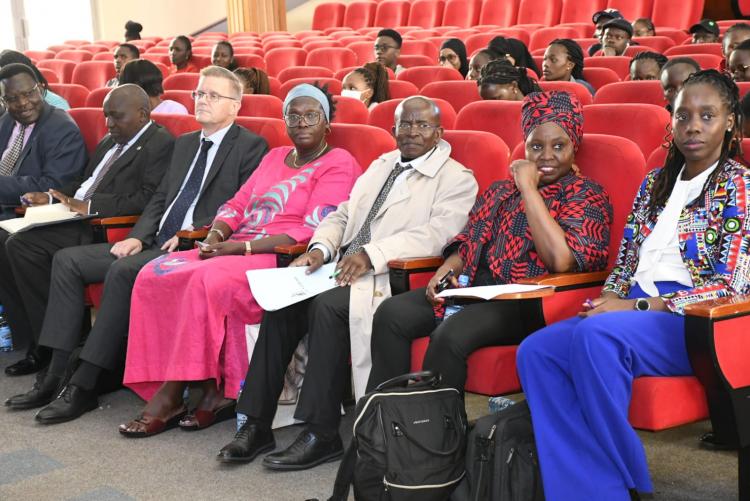On Tuesday the 14th of November 2023, the University of Nairobi through the Department of Economics, in collaboration with National Gender and Equality commission (NGEC) , Africa Centre of Excellence for Inequality Research (ACEIR) , German cooperation and GIZ held a Public Lecture to disseminate a research report on Inequality in Kenya in Taifa Hall.
The VC, UoN Prof Stephen Kiama, who was represented by the Dean, Faculty of Arts and Social Sciences, Prof. Jack Odhiambo, mentioned that inequality is a multifaceted issue that manifests in different dimensions including education, social and economic sectors. To address these issues, the VC suggested that we leverage our academic prowess, research capabilities and community engagement initiatives. He concluded by reminding the attendees that the university of Nairobi will continue being a catalyst for positive change as it has always been.
Commissioner Thomas Oyier, who represented the Chairperson, NGEC Kenya, Dr. Joyce Mutinda underscored that Inequality is a major problem that he thinks threatens social and economic development. Furthermore, it threatens poverty reduction which is a global challenge that continues to persist. He called upon all stakeholders to come together and develop policies that will see inequality end.
The research was then presented by Dr Niek De Jong who took the audience through some definition of terms, how the research was conducted , the objectives and some of the outcomes. ‘From the research, inequality seemed to be higher in poorer counties, focusing on labour participation, the researchers basing their information from DHS 2022 data proved that there was a much lower employment rate among women than among men of 15 -49 years of age which suggest that the greatest gender gap in LFP persisted in recent years. Also results for decomposition into endowment, discrimination and residual effects show that the gap was higher in private formal and informal sectors than in public sectors which decreased along the wage distribution and that discrimination effect tended to account for most of the gap. As for fiscal incidence analysis, direct taxes had a larger inequality reducing effect but also poverty increasing while transfers in kind related to public expenditure on education and health majorly reduced inequality. To provide a cure for inequality, some policy options involving; increasing labour demand and productivity, strengthening social protection, increasing access to quality education and a more progressive taxation model were suggested. Other than that, the researchers mentioned technology and digitization, limitations to fiscal place and effects of policy makers as potential areas for further study.
A panel discussion followed as a reaction to the inequality reports where experts enumerated and commented on the different aspects of the research findings. Dr Martine Oleche, Chairman, Department of Economics, University of Nairobi, Prof Wanderi, Mount Kenya University, Dr. Precious Shikalia, WorldBank Kenya and Dr. Laura Barasa, UoN.
Prof. Damiano was the moderator of the day.

